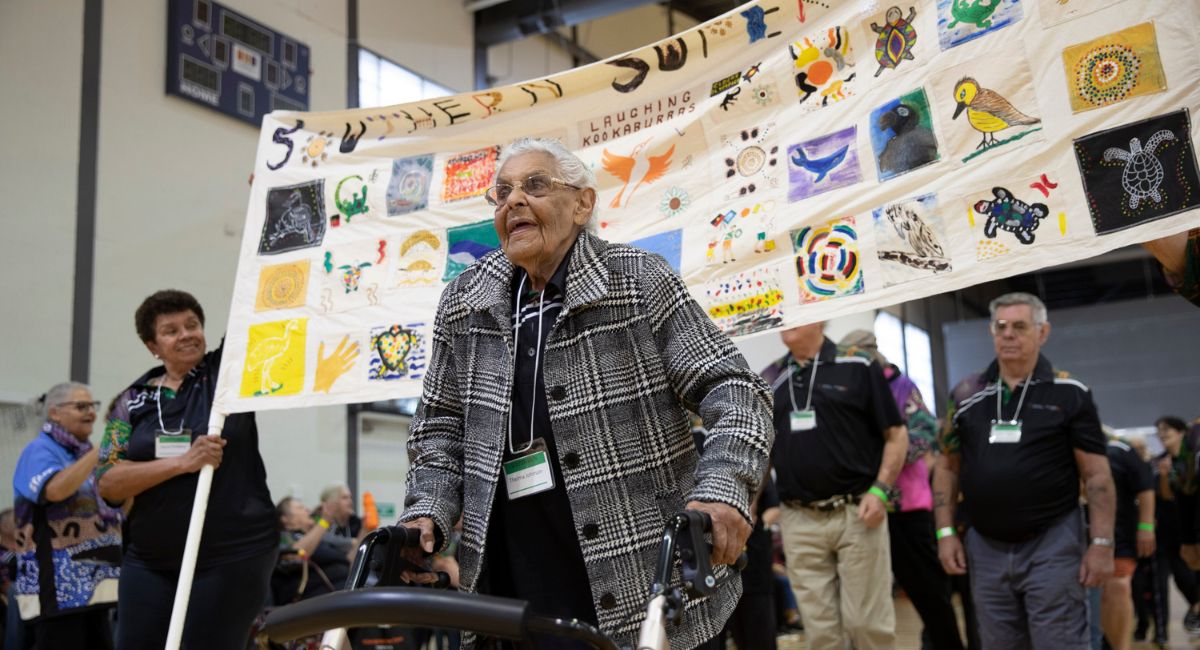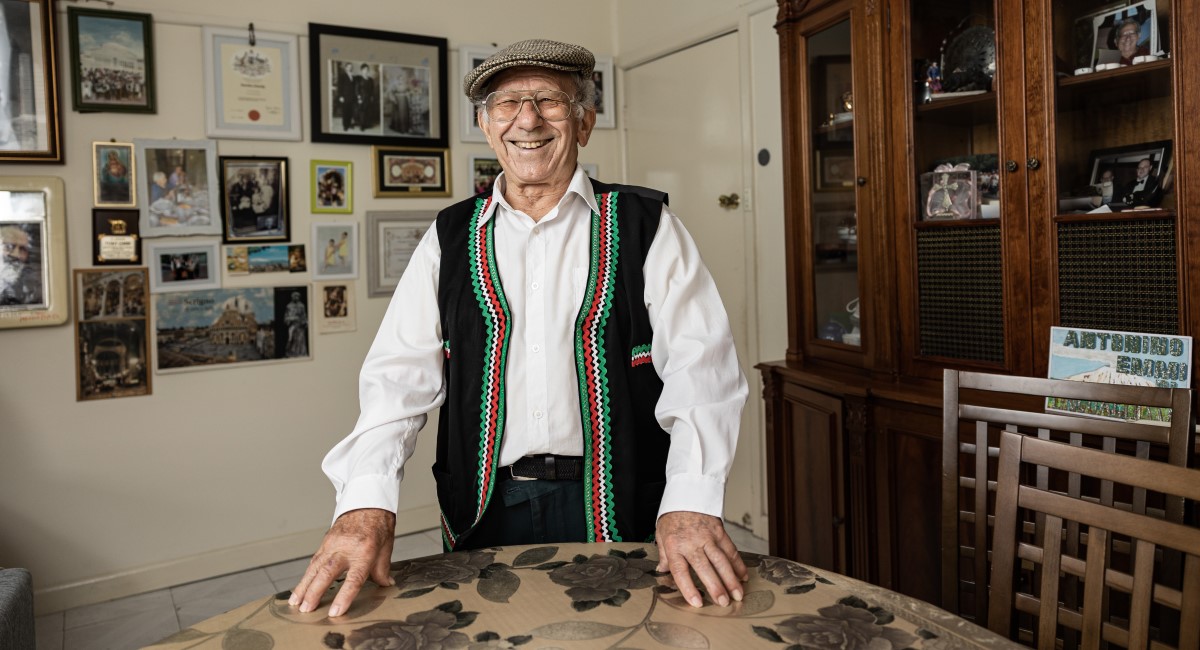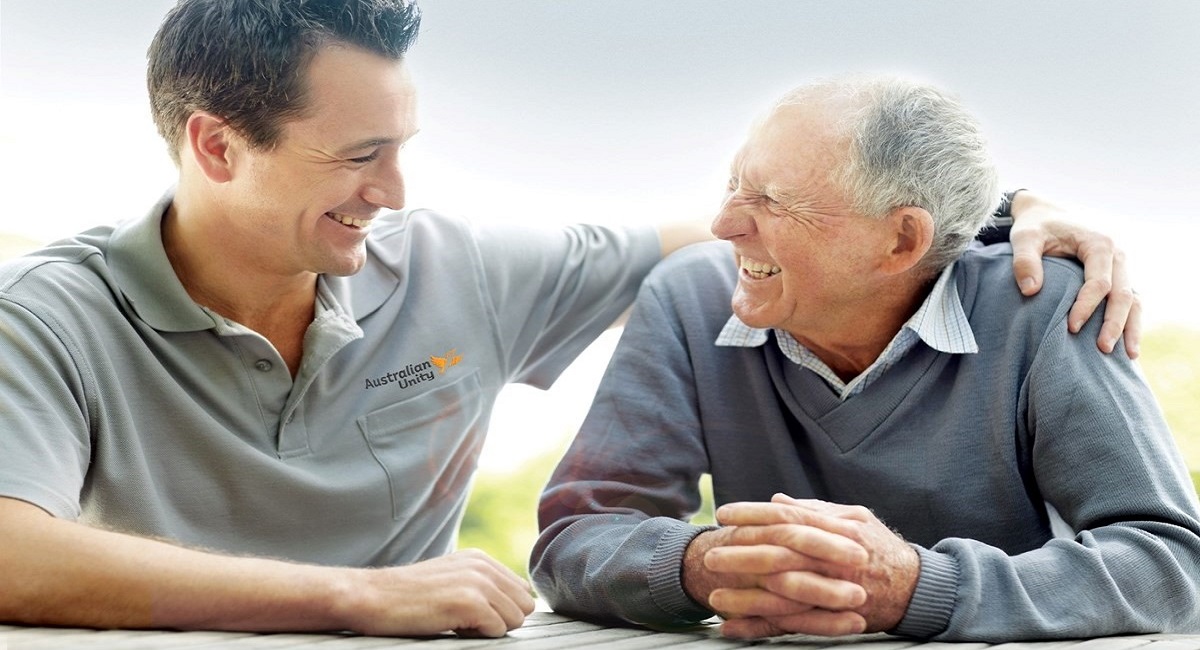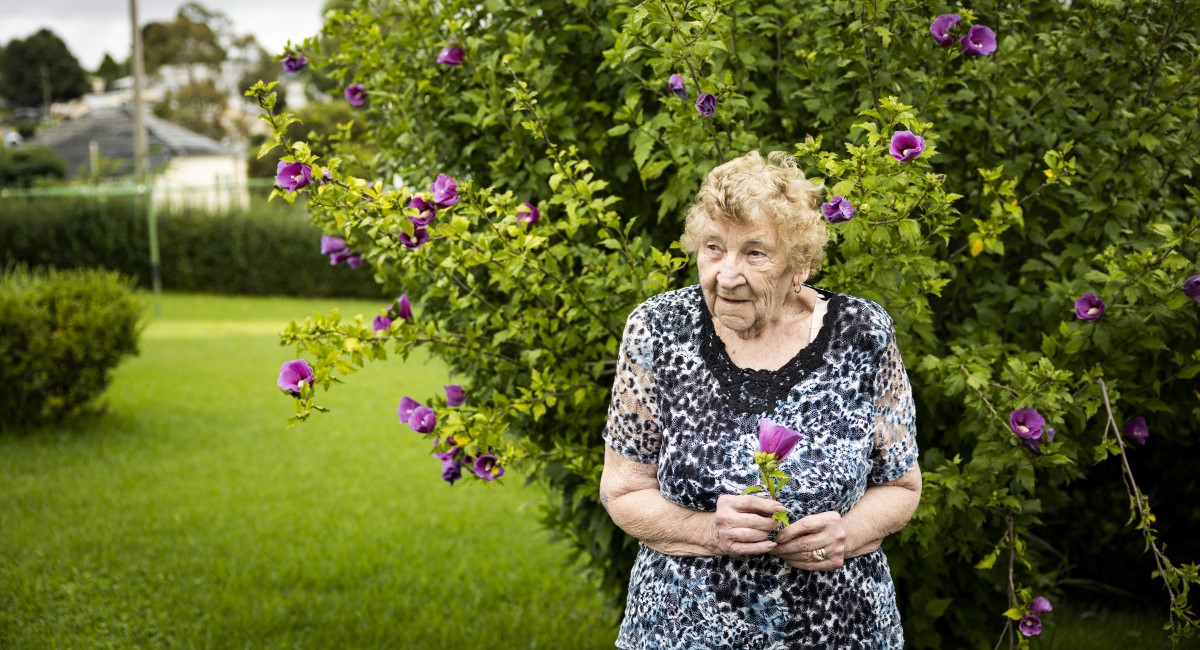“Meeting all different Aboriginals from different clans, getting to know them; it’s good to get out among them.” — George Aldridge, Australian Unity customer
Key points
- More than 75 Australian Unity customers recently competed in the inaugural Aboriginal Home Health Regional Elders Olympics.
- The main goals of the Elders Olympics are to enjoy physical activity and maintain cultural connection across communities.
- Many participants met people they were related to for the first time, including Jennifer Gray and Susan Gough, whose great-grandmothers were sisters.
WARNING: Aboriginal and Torres Strait Islander readers are advised that this article and video may contain images of people who have died.
Aboriginal Home Health Regional Elders Olympics took place in Darug Country, New South Wales. More than 75 Australian Unity customers from the northern, western and southern regions of New South Wales gathered at Blacktown Leisure Centre to participate in a day of friendly competition.
In the lead-up to the festivities, small-group training sessions were scheduled throughout the regions, to make sure competitors were fighting fit for their events, but also to forge the social connections that are such an important part of the Elders Olympics.
The main event began with an opening ceremony, including a smoking ceremony led by 101-year-old local Elder Uncle Les, as well as performances by First Nations dancers.
Various games and activities made up the competition roster, including tunnel ball and boot toss. Variations on traditional Aboriginal games kalladoon kee (bean bag toss) and gori (target ball) were also played.
By the end of the day, the Western Warriors had claimed victory, followed by the southern and northern teams in second and third place respectively.
Family ties
Though one of the main goals of the Elders Olympics is to enjoy healthy competition and physical activity, second to that is the importance of maintaining and re-establishing cultural connection across communities. Many attendees used the time to catch up with old friends and make some new connections, too.
In fact, several people met family members for the first time – on occasion discovering relatives they’d never known existed.
Such was the case for customer Jennifer, who attended the Elders Olympics as a spectator, having driven from her home in Orange with members of the Western Warriors contingent. “It was good, meeting cousins I didn’t know I had,” she says.
It was during a yarn with a fellow attendee that she made her first family connection, with Kerry Dews, 69, from Campbelltown. “I’m from the Darug side and when I mentioned them, Kerry knew who I was talking about,” Jennifer says. “She said, ‘I’m related to them too’.”
Kerry explains that she and Jennifer are connected through the Lock family, who hail from the Blacktown and Mount Druitt region. “Meeting up with people and communities from different areas, it was unbelievable,” she says. “I just loved the whole lot of it.”
Jennifer also recognised the surname of another competitor, Susan Gough, and the pair realised that their great-grandmothers were sisters. “My uncle had given me a list of who I’m related to, and when I saw Sue’s name, I thought ‘I’ve heard that name before’,” Jennifer says. “The family got separated over time. It was good to see them.”

A boost for social wellbeing
In addition to participating in every event, “born and bred” Nowra customer George Aldridge, 71, was pleasantly surprised when a fellow competitor recognised his name and told him they were related through his father’s side. “It blew me away,” he says. “I’d never known anybody from dad’s family before.”
George says he “enjoyed every minute” of the Elders Olympics and is excited to return next year.
“Meeting all different Aboriginals from different clans, getting to know them; it’s good to get out among them,” he says.
It’s stories like these that make the Elders Olympics – and social gatherings in general – so vital for Aboriginal and Torres Strait Islander people, says Joshua Paulson, Acting Southern Regional Manager for Aboriginal Home Health.
“This is an example of the impact of previous policies that are very much still alive and we, as First Nations people, live with,” he says.
“It is also the perfect example of why large-scale events for First Nations people maintain connection to culture and kinships.”
Information provided in this article is of a general nature. Australian Unity accepts no responsibility for the accuracy of any of the opinions, advice, representations or information contained in this publication. Readers should rely on their own advice and enquiries in making decisions affecting their own health, wellbeing or interest. Interviewee names and titles were accurate at the time of writing.


